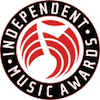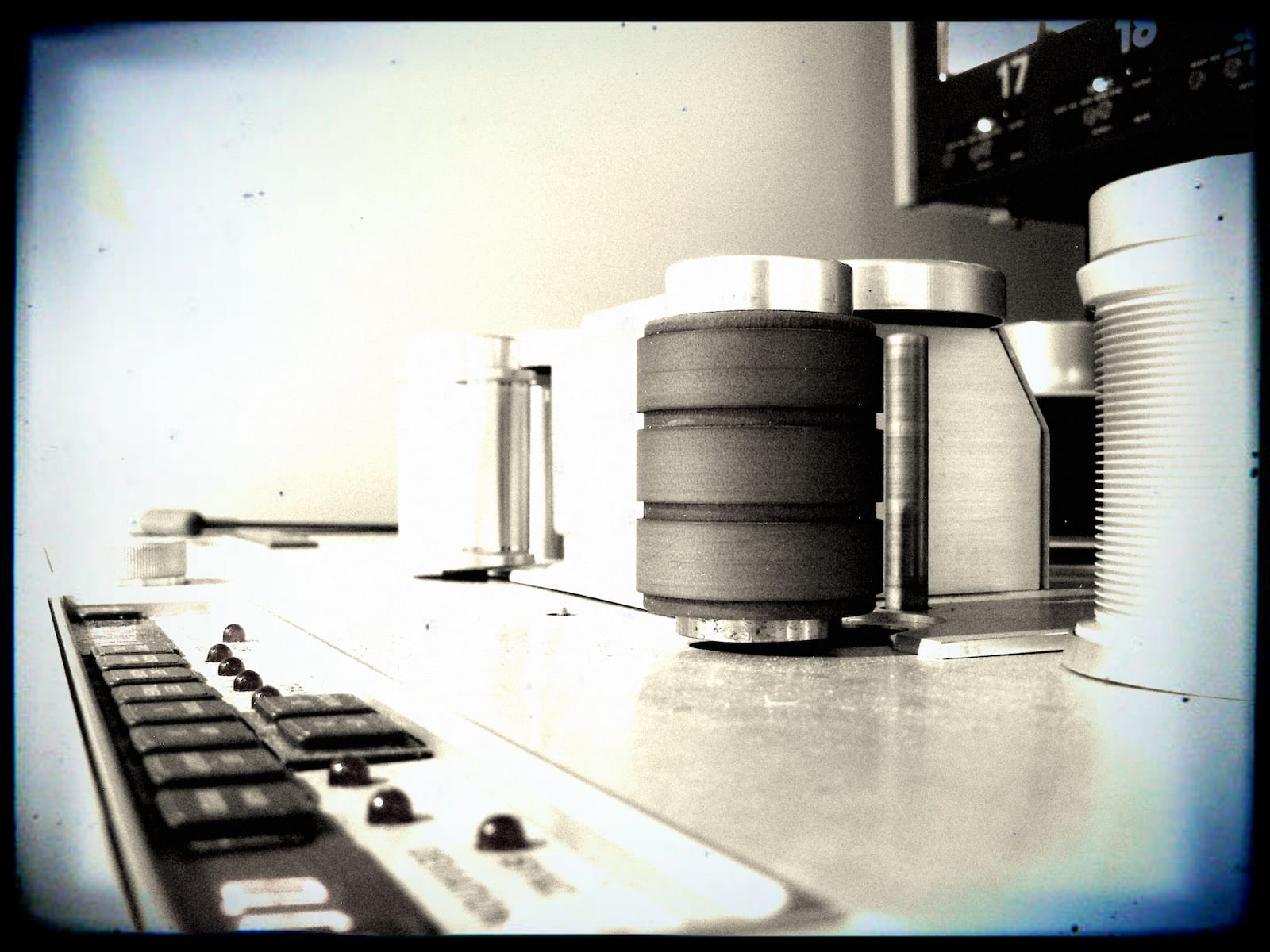Mastering is as much a collaborative process as a technical one, and I take great care to ensure that my client’s songs are representative of their creative vision.









ARTIST REVIEWS
“Evan was so great to work with when it came to mastering my album. Not only was I overwhelmingly pleased with the way the final product came out. Evan also went the extra mile and mastered a completely different second version of our record specifically for the vinyl pressing. I was blow away by his attention to detail and desire to give the vinyl version the justice it deserved. To this day the thing that almost everyone compliments my record on is the way that it sounds coming through their stereos, speakers, or headphones. Though I was a small, independent DIY artist, he treated me and my recording project with respect, professionalism, and attention.”
“Our work that Evan mastered has now been placed on major TV more than anything else we’ve released in the past. This isn’t just a coincidence – Evan brought a dynamism and sheen to the tracks that’s immediately impacting on the listener.”
“I have worked with Evan Bradford on mastering last three albums. Every time I have been overwhelmingly pleased with the result. He has an amazing ear for bringing out the true spirit of the song and makes the recording sound professional and balanced. I am amazed how quickly he works. I don’t think I’ve ever waited more than a week for the finished product. Thank you, Evan for all the great sounding tunes!”
“When I decided to record my entire album exclusively at my home studio, I worried about the compromises I might have to make in sound quality with a modest budget. Luckily, I turned to Evan’s mastering services. He made the vocals soar above the texture, tightened up the low end, and gave the full album a consistency that I couldn’t quite achieve alone. Contact him today for your mastering needs, and if you don’t have anything to get mastered, record something for him to master. You won’t regret it.”
MASTERING REEL
Standard mastering starts at $100/song and includes:
- Digital Masters
- DDP Image Authoring for CD
- Vinyl & Cassette Masters
- MFiT (Mastered for iTunes)
- ISRC Codes
- Sequencing
- Rush service available
Custom rates available for special projects and/or full albums
Mastering is an investment in bringing your creative vision to life.
Aside from the sonic aspect, mastering is also the final QC before your music reaches the world, a practice that is not always considered with the many other mastering options.
That’s why I work closely with every client to ensure that the sound is spot on in order to preserve the integrity of their work.
Ready to get started on your project?
Want to learn more about my process? Or are you interested in finding out what I can do for your music, but not ready to commit yet? Contact me for a sample master at no charge.
What is mastering?
Mastering is the last process before your songs are released to the world, and, as you can probably imagine, it’s important. Once your songs are mixed, mastering involves taking the stereo files and doing any necessary final EQ and compression, as well as “standardizing” the overall volume. In the context of an album, mastering also involves doing all the necessary sequencing, fades, and transitions, as well as assigning ISRC and UPC codes and embedding metadata into the files. Above all, a huge part of mastering is the final stage of QC (quality control) before physical and/or digital distribution.
Why should I have my music mastered?
If you take your music seriously, and want others to do the same, you absolutely can’t skimp on a quality mastering job. Any professional piece of music you’ve ever heard on Spotify, on the radio, on TV/film, etc, has gone through the mastering process. Why should you treat your music any differently when the costs are so affordable? If you want to see what I can do for your song(s), send one over to me via the upload form and I will get a sample to you absolutely free.
What is mixing?
Mixing is the process of combining all the individual tracks (instruments, vocals, effects, etc) of your song into a stereo file. This involves EQ, compression, overall balance of each element, automation, and effects. The only way to end up with a truly great master is to have a mix that you already love; there’s not much truth to the myth that mastering can fix a bad mix. It can address some issues, but it’s not a “fix-all”. The bottom line is that if you’re not happy with your mix, it’s unlikely you’ll be 100% happy with your master. With that being said, we will give you a free consultation on your mix before we master it.
How do I zip my songs into one file?
On OS X:
- Select all of your files by holding “Command” and clicking on each of them
- Hold “Control” and click on any of the selected files and choose “Compress Items” from the menu
- A file will be created called “Archive.zip”
- Select the file and press “Return” to rename it (leaving the .zip at the end)
On Windows:
- Select all of your files by holding “Ctrl” and clicking on each of them
- Right-click on any of the selected files and choose “Send to” then “Compressed (zipped) folder” from the menu
- Right-click on the new file that’s created and choose “Rename” to rename it
Do you offer mixing?
Yes! A site for my mixing services is currently in the works, but in the meantime, contact me to find out more information.
What is a DDP image, and do I need one?
A DDP (“Disc Description Protocol”) image is a set of files that can be uploaded directly to most disc manufacturers instead of having to send a physical CD via mail. This image contains all of the metadata such as artist name, track titles, etc, as well as all of the sequencing, gap, and fade information. You only need a DDP image if you’re planning on using a manufacturer to create CDs of your songs, and I will send you a DDP player created from the DDP image so that you can preview exactly how everything will sound once it’s on discs. This ensure that everything turns out exactly the way you want it.
What are ISRC codes, and do I need them?
From usisrc.com: “The ISRC (International Standard Recording Code) is the international identification system for sound recordings and music video recordings. Each ISRC is a unique and permanent identifier for a specific recording, independent of the format on which it appears (CD, audio file, etc) or the rights holders involved. Only one ISRC should be issued to a track, and an ISRC can never represent more than one unique recording.
ISRCs are widely used in digital commerce by download sites and collecting societies. An ISRC can also be permanently encoded into a product as its digital fingerprint. Encoded ISRC provide the means to automatically identify recordings for royalty payments.”
Because they aid in tracking both physical and digital sales, having them for each of recordings is a smart bet. You can obtain them from the RIAA for a fee of $95, but I offer them free of charge to all my clients.
What is Mastered for iTunes (MFiT)?
Mastered for iTunes is a set of protocols for making music available on iTunes in Apple’s new iTunes Plus format, which is variable bit rate (VBR) 256 kbps AAC. In order to have your songs on iTunes at this higher resolution, you have to have them mastered to MFiT specs by an engineer that is on Apple’s “MFiT Providers List”. I include MFiT files if requested.
For more information, see https://www.apple.com/itunes/mastered-for-itunes/docs/mastered_for_itunes.pdf
Do I really need a different master for vinyl or cassette?
While you can use a master done for digital when sending to a vinyl or cassette manufacturer, I do recommend having separate files prepped for these formats in order to get the best sounding results. I don’t make any major alterations to the overall sound, but there are a few technical differences with how the files should be prepped and delivered.
How exactly does the process work?
It’s easy! Decide which of our tiers is right for you and click the click to go to the page corresponding to that tier. Follow the three step process and you will have your masters in no time!
What should I do before sending my mixes to be mastered?
Make sure that you’re not using any sort of limiting or heavy compression on your mix and that it’s not clipping. Export it from your DAW at the sample rate at which it was recorded (44.1kHz, 48kHz, etc) and 24 bit. If you need more help feel free to contact me and I’ll be happy to help!
When and how do I pay?
We require payment before we start working on your mastering. Once your files have started uploading, click the “Checkout” button on the page and you can pay securely with any major credit card or via PayPal.
GET IN TOUCH
Have a question? Want a custom quote? Let’s chat! Fill out the contact form, shoot me an email or give me a call.





